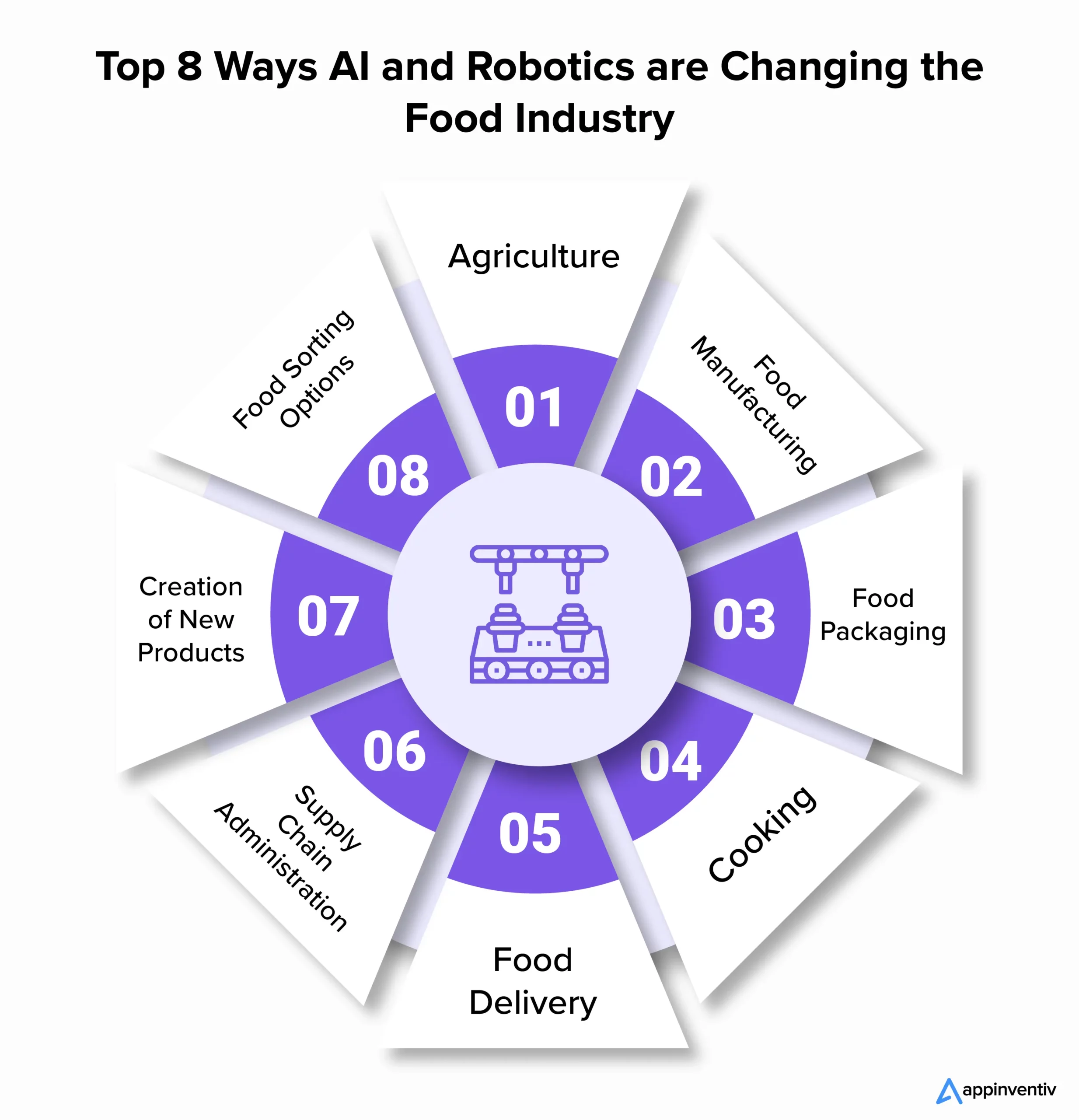Artificial Intelligence is becoming a big trend, even in the food industry. In fact, the use of the technology by food companies is predicted to increase at a Compound Annual Growth Rate (CAGR) of 45.77% over the next five years. But why such a massive growth rate?
AI Trend in the Food Industry
The food industry, sometimes underestimated, is a vast and complex ecosystem humming with activity. At every stage of food production, the businesses involved are constantly faced with several challenges, whether it’s supply chain issues, rising cost of production due to demand, production efficiency, and so on.
What is more pressing is the spree of hikes in food prices, which has left manufacturers with less room to further raise food prices. Some consumers are even growing reluctant towards the seemingly incessant food price hikes, forcing businesses to turn elsewhere to offset high production costs.
Alternatively, several companies have been turning to AI, among other methods, to manage costs internally as well as improve efficiency in production. The trend is expected to grow bigger, with more small and midsize companies expected to incorporate AI technology into their operation this year in one way or another.
“We’re just at the start of it,” said Mikael Bengtsson, industry and solution strategy director of food and beverage at Infor. “We’re early in the curve.”
More Food Companies to Turn to AI
In addition to saving costs, Bengtsson noted that companies in the food industry could leverage AI technology to increase production, set prices, develop products, and improve efficiencies in their supply chain.
The trend is already playing out with the likes of Coca-Cola in November announcing a beverage co-created with human and artificial intelligence. Earlier, German beer Beck’s also announced the world’s first beer and full marketing campaign made with artificial intelligence.
In addition to facilitating production, AI technology can also be leveraged to monitor crops in real-time, gathering information on soil health, moisture levels, and pest infestations.
“It’s truly disruptive. It’s scary how quickly and how much better AI can work in certain functions than human workers,” said Brian Choi, CEO of The Food Institute. “Its [use] is definitely going to pick up.”





